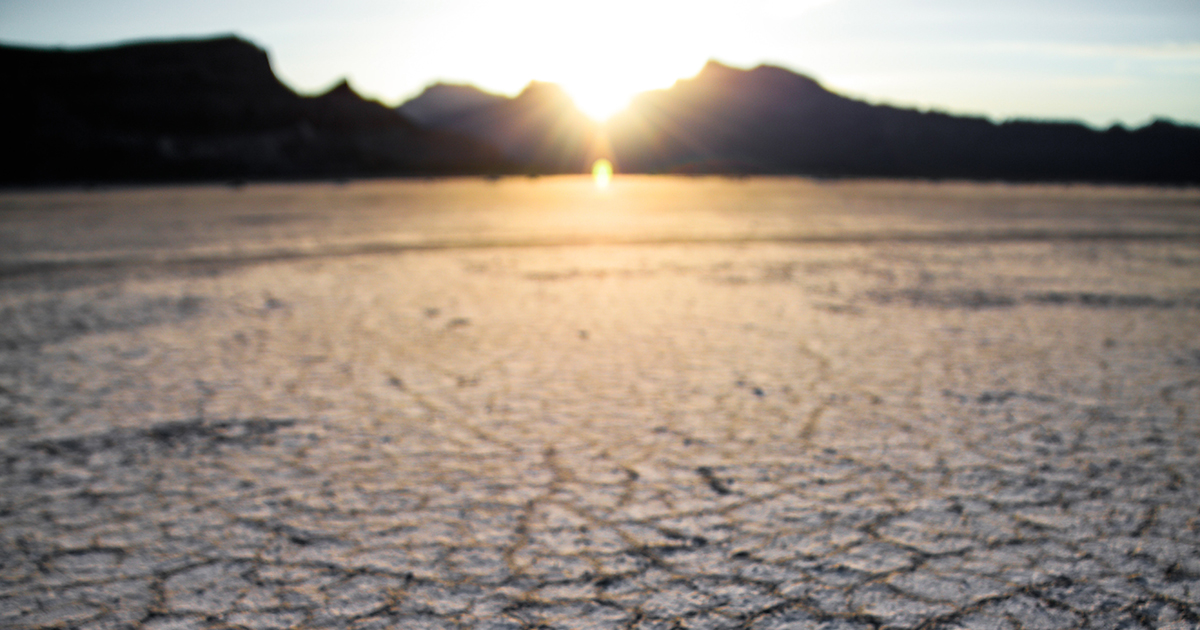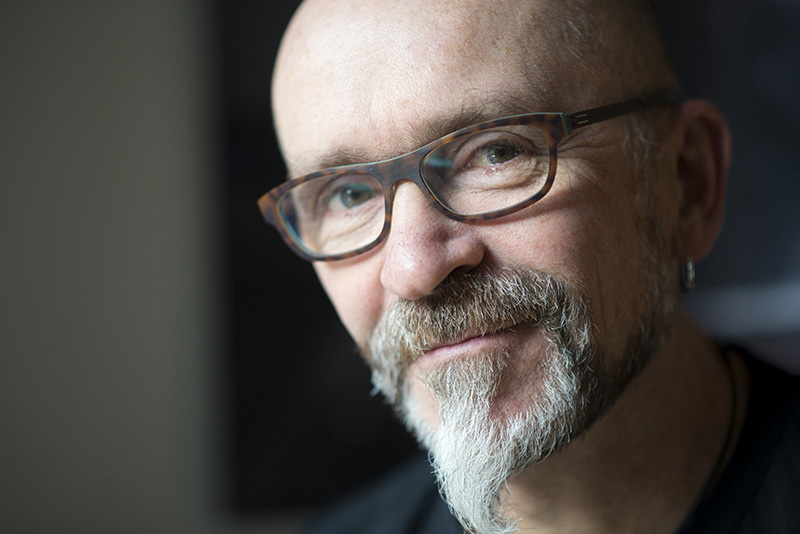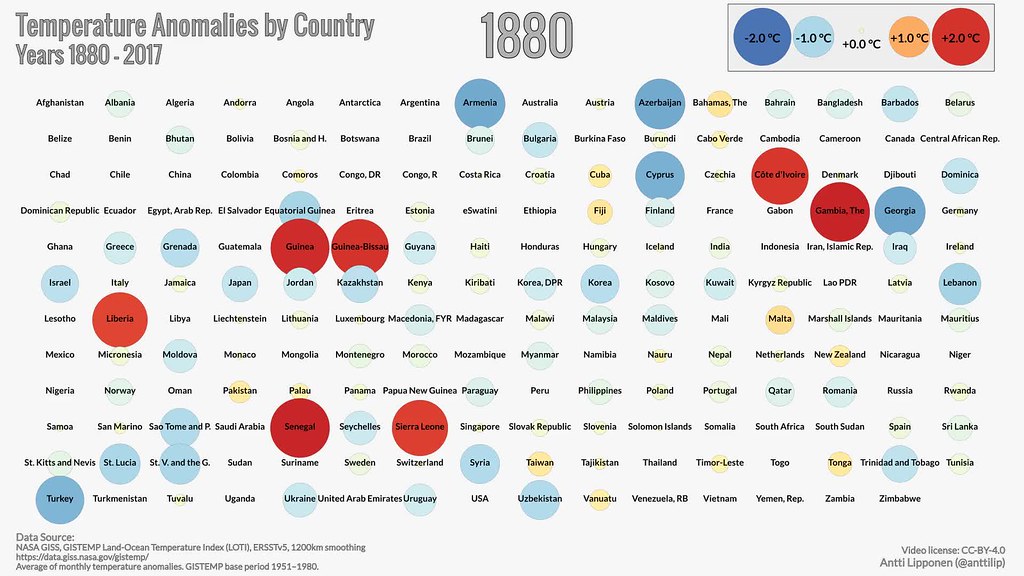SOAPBOX
★ ★ ★ ★
OAFS AND FISHES

By Mike Hembury
Oh man.
I come back from my holiday in the Dead Zone and my home harbor is dead too.
Don’t you just hate it when that happens?
The Dead Zone in question, by the way, is the Baltic Sea, 15% (20,000 square miles) of which has now officially been declared to be so oxygen-depleted that it is incapable of supporting marine life. It also has the sad distinction of being the largest of the planet’s 400 dead zones. The Baltic is so full of toxic cyanobacteria (a.k.a. green slime) that Polish authorities banned swimming on 50 beaches this summer.
Poisoned tourists being so bad for business, right?
Marine dead zones are primarily caused by fertilizer and manure slurry run-off from industrial agricultural production, but of course it’s easier to ban swimming than industrial farming.
And my home harbor?
Well, we have an old boat, usually parked on a lake here in Berlin.
This summer, our particular part of the lake—a water source for the city by the way—was coated with oil, maybe from a spill, or possibly washed into the lake from the roads by rainwater.
But you can forget the rainwater. We’re in the middle of a record drought that people are already comparing to the apocalyptic drought conditions of the mid 14th century. In the River Elbe, water is so low that “hunger stones” from that time are emerging, with inscriptions like “If you can see me, weep”.
But back to the dead fish. First I thought that they had died from oil poisoning. But the local paper informed me that they had in fact died from oxygen starvation, which everyone knows is a “natural phenomenon”.
What a relief. Our part of the lake may be dead, but at least it’s natural.
Naturally dead.
Nothing to worry about.
Nothing to see here at all, in fact.
Move along there.
Keep calm.
Back to work.
Business as usual.
* * *
Back at work, I have a little recurring memory our holiday. We’re in the ancient Polish port city of Szczecin, on the southern reaches of beautiful Lake Dąbie. We’ve just tied up the boat, when a medium-sized fish swims over, and opens and closes its mouth like it’s trying to tell me something. Bizarre enough, I guess, only: this fish is swimming on its back. This fish is lying belly-up in the water gasping for breath. The water is bright green. The fish is dying, and there’s not a thing I can do about it.
Like: Mouth-to-mouth resuscitation for a fish? Forget it.
This summer they hauled 5 tons of dead fish out of the water in Hamburg.
Florida’s so-called “red tide” (a toxic algae bloom) also produced 2,000 tons of dead marine life this summer, including 540 endangered manatees.
This stuff is playing out around the globe.
But my little Polish fish keeps talking to me.
And you know what it’s not saying?
It’s not saying “Nothing to worry about” in a tiny little reedy fish voice.
No way.
No, it’s me that is tiny, and the fish’s mouth is a huge cavernous tunnel opening, and its voice is a cross-fire fucking category six hurricane that is blasting out a message at decibel levels loud enough to drown out all the jet engines in the world.
And its message is this:
“It’s a planetary crisis you moronic fucking oaf! Get your arse into gear!”
* * *
Here’s the deal with dead fish, and toxic algae, and fertilizer run-off: it’s all to do with the so-called nitrogen cycle. Over the past fifty years, the world has hugely increased the amount of nitrogen in the environment, thanks to the way we deal with sewage treatment, animal waste, fossil-fuel burning and farming with chemical fertilizers.
Turns out that the nitrogen cycle is one of the nine “planetary boundaries” that are key for continued life on Earth. The idea of planetary boundaries was devised in 2009 by a group of Earth system scientists from the Stockholm Resilience Centre. The boundaries are ozone depletion and aerosols in the atmosphere, biodiversity loss, chemical pollution, ocean acidification, the global freshwater cycle, land system change and nitrogen and phosphorous flows to the biosphere and oceans.
The fundamental idea of planetary boundaries is simple: Cross one, and you are in deep shit.
The latest research however, indicates that we have already crossed four. The other five, by the way, aren’t looking good either.
So we’re not just talking climate change here. We’re talking about a systemic cluster-fuck of planetary proportions.
And just in case any of this is making you a little uneasy, queasy even, I have another little tidbit for you.
A paper was recently published in the respected journal “Proceedings of the National Academy of Scientists of the United States of America”. The paper was called “Trajectories of the Earth System in the Anthropocene”.
The paper basically said that it takes a lot of effort to change the Earth from one stable state to another stable state.
But our industrious industrial society has been making a shitload of effort for the past century or more, and we’ve now moved the Earth into a new geological era, the Anthropocene. But we’re no way stable yet. In fact, we’re only getting started. Things are just starting to speed up dramatically.
The authors of the paper make the analogy to a ball, teetering on the top of a ridge between two valleys.
The old valley is the Holocene, the era we have just left.
The new valley is what they call a “Hothouse Earth” state.
If we give the Earth enough of a kick, we can send it down the slope to the Hothouse Earth state, and it will be almost impossible to move it back.
According to the scientists, the threshold for that kick would be 2°c of warming.
So right now, we still have the chance to stop making things worse, repair some of the damage, and steer the Earth back towards something resembling the Holocene.
Things will be different, sure. But they won’t be so totally different as to be catastrophically fucked-up forever.
But they also won’t be anywhere near what we might assume to be “natural”, in the sense of self-regulating.
We’re going to have to make an enormous effort to actively fix things.
The “Hothouse Earth” scientists have proposed a name for this necessity to take pro-active measures. They call it “Earth System Stewardship”.
This is very like the idea of those “you break it, you own it” signs you see in shops selling porcelain and china.
Because of course, we are the bull in china shop Earth.
We broke it. Now, like it or not, we own it.
It’s not too late.
We can still steer this thing around. But it’s going to take a lot of effort. It’s going to take all our concentrated, collective energy.
Ah, just a sec.
Did I say we own it?
Maybe I need to be a little more precise.
We may own it, but we don’t control it.
Seems like a criminal bunch of crazed fossil-fuel capitalists and their cronies have seized control of the bridge of the good ship Earth System and are steering us towards extinction.
Looks like a global mutiny is in order, crew…
* * *
As I write this, the room I’m in smells like it’s been up close to a bonfire. Last night the late summer air was still hot and smelt of burnt rubber. But we’re lucky, I guess. Further south, three forest fires are raging. The rubber smell is from some kind of dump that’s gone up in flames, but the press isn’t saying what kind of dump. The forests are still littered with unexploded bombs and ammunition from WWII, so the fires are punctuated by explosions. Four towns have been evacuated and the police are assuming that the fires were started deliberately.
This isn’t how it’s supposed to be.
I’ve lived in this city for thirty years and we’ve never had smoke from huge forest fires drifting into the city.
Like I said, we’re lucky. This is not California, or British Columbia, or Siberia, or Greece.
Maybe that’s it.
Maybe that’s all we get to expect now that our trajectory into the Anthropocene is really starting to speed up.
Maybe the best we can hope for is “things are much worse somewhere else”.
After all, that’s what they want us to fight for, right? To keep the richer countries safe from all those people desperately trying to escape those places ravaged by civil war, crop failures, drought, disease, and by temperatures moving beyond the limits of human tolerance.
We’re supposed to ride our armed lifeboats all the way to Hothouse Earth, while the world goes up in flames around us…
* * *
As a writer, this is the point in the story where it would be nice to say “And then I woke up”. As in: It was just a dream. Just a really bad nightmare.
But we don’t get to wake up.
This is the trip we’re on. This is the hellish ride into the future that the current masters of the planet have mapped out for us.
I think it was Obama who said “We are the first generation to feel the effect of climate change and the last generation who can do something about it.”
Actually both parts of that statement are not true.
Sub-Saharan agriculture was already wiped out by 19th and 20th century coal emissions by the middle of the 20th century.
And every generation that follows us will be able to do something. It’s just that they will have less to work with, harsher conditions, and a catastrophically reduced range of options.
We thankfully still have a broad range of options open to us. So what do we need to do?
Will Steffen, one of the authors of the Hothouse Earth paper, puts it like this:
“Absolutely no new fossil fuel developments. None. That means no new coal mines, no new oil wells, no new gas fields, no new unconventional gas fracking. Nothing new. Second, you need to have a rapid phase-out plan for existing fossil fuels.”
He also goes on to make the point that we need to be on something like a “wartime footing” in order to re-align the trajectory of the planet.
I mean, imagine if climate change, and all the other existential threats we have created, were a giant asteroid hurtling to earth—what resources we’d muster to save the planet! But in disaster movie scenarios, no-one ever objects to being rescued on the grounds that it might negatively affect their profits.
And there’s the crunch.
We need to outlaw fossil fuels.
At the time of writing, the huge European energy company RWE is gearing up to totally destroy an ancient German forest—the Hambacher Forst—so that they can expand an already gigantic open cast lignite (aka “dirty coal”) mine. They have been expropriating towns and villages and destroying centuries old churches in preparation for this.
Expropriating, in this context, means forcibly taking possession of people’s homes and property, in spite of their resistance to it.
It is happening with the connivance of the governments at state and federal level.
And it’s happening all in the name of a dirty, polluting fuel source that nobody needs any more.
In the present situation this amounts to criminal, ecocidal activity on a massive scale.
I think we need to turn this around.
Because there is another use of the word expropriate, which is “to take property from its owner for public use or benefit”.
I think we need to expropriate the fossil fuel companies whilst making sure that all the workers get jobs in new industries.
I think there has probably never been a time when the necessity for such action has been clearer.
We need a massive mobilization of resources to invest in clean technologies to help us move back from the planetary boundaries we have already crossed.
Saving the Earth needs to become our primary political obsession.
How come?

Mike Hembury is an Anglo-Berliner originally from Portland, England. He’s a writer, translator, musician, coder, sailor, environmentalist and guitar nerd in no particular order. He is the author of New Clone City, nominated as a “Hot Berlin Read” by Exberliner magazine. You can follow Mike on Twitter here: twitter.com/schnappz

DEAR READER
At The Wild Word we are proud to present some of the best online writing around, as well as being a platform for new and emerging writers and artists.
If you have read the work in The Wild Word and like what we do, please put something in our tip jar.
THANK YOU FOR YOUR SUPPORT!

























Scary, stirring piece!
This has to be one of the best pieces about the Great Grief I’ve read. The way you’ve combined information with description and emotional reaction is great.
Excellent piece.
Are the narrative anecdotes part of a ‘near future’ conceit, or are these things that you have already seen?